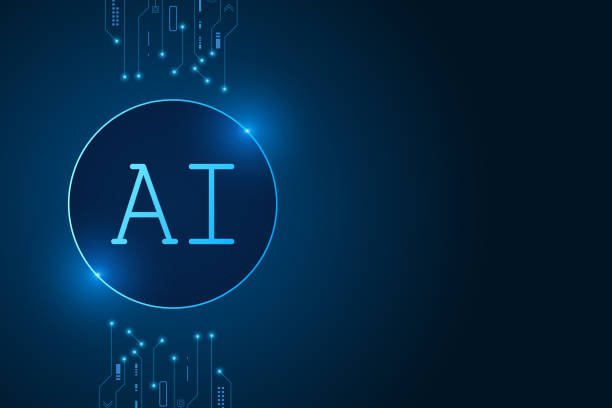What is Artificial Intelligence: Definition, History and Basic Concepts

Artificial intelligence (#AI) is a branch of computer science that deals with building machines that can perform tasks that usually require human intelligence.
This includes learning, reasoning, problem-solving, perception, and language comprehension.
The history of artificial intelligence dates back to the 1950s, when researchers began exploring the possibility of building intelligent machines.
Since then, artificial intelligence has made significant progress and is now used in various fields such as healthcare, finance, transportation, and manufacturing.
Basic concepts of artificial intelligence include machine learning algorithms, neural networks, and natural language processing.
Machine learning allows machines to learn from data without being explicitly programmed.
Neural networks are models inspired by the structure of the human brain and are used for pattern recognition and prediction.
Natural language processing allows machines to understand and produce human language.
Artificial intelligence is developing rapidly and is expected to play a more important role in our lives in the future.
Its benefits include increased efficiency, reduced errors, and improved decision-making.
However, there are also challenges, such as concerns about the ethics and security of artificial intelligence.
Does your company’s website perform as well as your brand deserves? In today’s competitive world, your website is your most important online tool. Rasaweb, a specialist in professional corporate website design, helps you to:
✅ Attract customer credibility and trust
✅ Convert website visitors into customers
⚡ Get free consultation!
Types of Artificial Intelligence: From Expert Systems to Deep Learning

There are different types of artificial intelligence, each with its own features and applications.
Expert systems are one of the oldest types of #artificial_intelligence that use specialized knowledge in a specific field to solve problems.
Machine learning allows machines to learn from data and improve their performance without explicit programming.
Deep learning is a subset of machine learning that uses deep neural networks to solve complex problems.
Natural language processing allows machines to understand and produce human language.
Machine vision allows machines to see and interpret images.
Choosing the right type of artificial intelligence depends on the specific problem that needs to be solved.
For example, if you need to solve a specialized problem, an expert system may be appropriate.
If you need to learn from data, machine learning or deep learning may be appropriate.
If you need to understand or produce human language, natural language processing may be appropriate.
Artificial intelligence is transforming various industries and has great potential to improve our lives.
Applications of Artificial Intelligence in Various Industries: A Comprehensive Review

Artificial intelligence has extensive applications in various industries.
In healthcare, artificial intelligence can be used to diagnose diseases, develop drugs, and provide personalized care.
In finance, artificial intelligence can be used to detect fraud, manage risk, and provide financial advice.
In transportation, artificial intelligence can be used for autonomous driving, route optimization, and traffic management.
In manufacturing, artificial intelligence can be used to automate processes, control quality, and predict failures.
Artificial intelligence is also used in other fields such as education, retail, and entertainment.
The use of artificial intelligence in these industries has led to increased efficiency, reduced costs, and improved service quality.
For example, in healthcare, artificial intelligence can help doctors diagnose diseases earlier and more accurately, which can lead to improved treatment outcomes.
In finance, artificial intelligence can help companies detect fraud and prevent financial losses.
Artificial intelligence is becoming an essential tool for businesses in all industries.
| Industry | Application of Artificial Intelligence |
|---|---|
| Healthcare | Disease diagnosis, drug development |
| Finance | Fraud detection, risk management |
| Transportation | Autonomous driving, route optimization |
Challenges of Implementing Artificial Intelligence: Limitations and Obstacles

Implementing artificial intelligence comes with many challenges.
One of the main challenges is the lack of training data.
#Artificial_intelligence algorithms need a lot of data to learn and improve their performance.
If enough data is not available, the algorithms cannot function effectively.
Another challenge is the high cost of implementing artificial intelligence.
The hardware and software required for artificial intelligence are expensive and require technical expertise.
Concerns about the ethics and security of artificial intelligence are also among the challenges.
It is important to ensure that artificial intelligence is used responsibly and safely.
In addition, integrating artificial intelligence with existing systems can be complex and difficult.
It is often necessary to modify existing systems or create new systems to be compatible with artificial intelligence.
Resistance to change can also be an obstacle, as some people may be hesitant to adopt artificial intelligence and change their work methods.
Despite these challenges, the potential of artificial intelligence to improve our lives is great and it is worth overcoming these challenges.
Do you dream of a thriving online store but don’t know where to start?
Rasaweb is your comprehensive e-commerce website design solution.
✅ Attractive and user-friendly design
✅ Increased sales and revenue⚡ Get a free consultation
The Future of Artificial Intelligence: Predictions and Key Trends

The future of artificial intelligence looks very bright.
It is expected that artificial intelligence will play a more important role in our lives in the future and will transform various fields such as healthcare, finance, transportation, and manufacturing.
One of the key trends in artificial intelligence is the development of more advanced machine learning algorithms.
These algorithms can learn from less data and perform better.
Another trend is the development of more reliable and safer artificial intelligence.
This is necessary for the widespread adoption of artificial intelligence.
The increasing use of artificial intelligence at the edge (Edge AI) is also an important trend.
Artificial intelligence at the edge refers to processing data on local devices instead of sending it to the cloud.
This can increase speed and efficiency and improve security.
Artificial intelligence is a transformative technology that has great potential to improve our lives.
However, it is important to ensure that artificial intelligence is used responsibly and safely.
Machine Learning and Its Role in the Development of Artificial Intelligence

Machine learning is one of the most important branches of artificial intelligence and plays a fundamental role in its development.
Machine learning allows machines to learn from data without being explicitly programmed.
This allows machines to solve complex problems and make better decisions.
There are different machine learning algorithms, including supervised learning, unsupervised learning, and reinforcement learning.
Supervised learning allows machines to learn from labeled data.
Unsupervised learning allows machines to learn from unlabeled data.
Reinforcement learning allows machines to learn through trial and error.
Machine learning is used in various fields such as fraud detection, disease diagnosis, autonomous driving, and natural language processing.
Machine learning is becoming an essential tool for businesses and organizations in all industries.
With recent advances in machine learning, it is expected to play a more important role in our lives in the future.
It has the potential to improve many aspects of our lives, from how we diagnose diseases to how we drive vehicles.
Ethical Artificial Intelligence: Considerations and Challenges

Ethical artificial intelligence examines the ethical issues related to the development and use of artificial intelligence.
As the power and complexity of artificial intelligence increases, the ethical issues related to it become more important.
Some of the key ethical issues include bias, transparency, accountability, and privacy.
Artificial intelligence algorithms can learn biases that exist in training data, and this can lead to unfair decisions.
Transparency means that we must be able to understand how artificial intelligence algorithms work and be able to explain the reasons for their decisions.
Accountability means that we must be able to identify people who are responsible for the negative consequences of artificial intelligence.
Privacy means that we must protect people’s personal information from misuse.
To solve these ethical issues, there is a need to develop ethical and regulatory frameworks that ensure the responsible and safe use of artificial intelligence.
There is also a need to educate and raise awareness among the public about the ethical issues related to artificial intelligence.
Artificial intelligence ethics are essential to ensure that artificial intelligence benefits all of humanity.
| Ethical Issue | Description |
|---|---|
| Bias | Algorithms can learn biases present in the data |
| Transparency | Understanding how algorithms work and the reasons for their decisions |
| Accountability | Identifying people responsible for the negative consequences of AI |
| Privacy | Protecting people’s personal information |
Artificial Intelligence in Iran: Current Status and Outlook

Artificial intelligence is developing in Iran, but it is still in its early stages.
The Iranian government has made investments in the field of artificial intelligence, and a number of universities and research centers are active in this field.
However, the shortage of artificial intelligence specialists and adequate infrastructure are among the main challenges to the development of artificial intelligence in Iran.
The outlook for artificial intelligence in Iran is positive and it is expected to play a more important role in the Iranian economy and society in the future.
By addressing the challenges and investing more, Iran can become one of the leading countries in the field of artificial intelligence in the region.
The use of artificial intelligence can help improve productivity, reduce costs, and create new job opportunities in Iran.
The Iranian government has plans to encourage the use of artificial intelligence in various industries and hopes that this will help the country’s economic growth and sustainable development.
Are you unhappy with the low sales of your online store?
Rasaweb is your solution to having a professional and high-selling online store.
✅ Significant increase in sales and revenue
✅ Easy and enjoyable shopping experience for customers
⚡ Get a free consultation from Rasaweb right now!
Skills Required to Enter the Field of Artificial Intelligence

To enter the field of artificial intelligence, a set of technical and non-technical skills is required.
Technical skills include knowledge of computer science, mathematics, statistics, and machine learning.
Non-technical skills include analytical thinking, problem solving, communication, and teamwork.
To learn artificial intelligence, you can use online training courses, books, and other educational resources.
You can also gain practical experience by participating in artificial intelligence projects.
It is important to continuously update your knowledge and skills, as artificial intelligence is an evolving field.
Artificial intelligence is a challenging and opportunity-filled field, and with effort and perseverance, you can succeed in this field.
Resources and Tools for Learning Artificial Intelligence

Many resources and tools are available for learning artificial intelligence.
Online courses such as Coursera, edX, and Udacity offer a variety of courses in the field of artificial intelligence.
There are also many books in the field of artificial intelligence that can help you learn basic and advanced concepts.
Many tools are also available for developing artificial intelligence applications, including TensorFlow, PyTorch, and scikit-learn.
Choosing the right resources and tools depends on your level of knowledge and goals.
It is important to continuously update your knowledge and skills in the field of artificial intelligence by using these resources and tools.
You can also gain practical experience by participating in artificial intelligence projects.
Frequently Asked Questions
| Question | Answer |
|---|---|
| 1. What is Artificial Intelligence (AI)? | It is a branch of computer science that aims to create machines capable of simulating human intelligence and performing tasks that require human thinking, such as learning, problem-solving, and decision-making. |
| 2. What are the main types of artificial intelligence? | It can be classified into Weak Artificial Intelligence (Narrow AI) focusing on a specific task, General Artificial Intelligence (General AI) possessing comprehensive human capabilities, and Super Artificial Intelligence (Super AI) surpassing human intelligence. |
| 3. Mention some common artificial intelligence applications in our daily lives. | Includes voice assistants (such as Siri and Alexa), recommendation systems (such as Netflix and Amazon), self-driving cars, facial recognition systems, and spam filters. |
| 4. What is the difference between Artificial Intelligence and Machine Learning? | Artificial Intelligence is the broader concept of creating intelligent machines, while Machine Learning is a subset of Artificial Intelligence that focuses on enabling systems to learn from data without explicit programming. |
| 5. What is Deep Learning? | It is a subset of machine learning that uses multi-layered artificial neural networks (deep neural networks) to process data and discover complex patterns, and is used in image and speech recognition. |
| 6. What are the most prominent benefits of artificial intelligence? | Improving efficiency and productivity, automating repetitive tasks, making better decisions based on big data analysis, and developing solutions to complex problems in fields such as medicine and science. |
| 7. What are the main challenges facing the development and deployment of artificial intelligence? | Includes the need for vast amounts of high-quality data, privacy and security issues, bias in data and algorithms, and high development and maintenance costs. |
| 8. Does artificial intelligence raise ethical or social concerns? | Yes, it raises concerns related to privacy, algorithmic bias, job loss due to automation, and responsibility for errors made by intelligent systems, and the need for a regulatory framework. |
| 9. How can artificial intelligence affect the future of the labor market? | It can lead to the automation of some routine tasks, but it will also create new jobs requiring advanced skills in developing, operating, and maintaining artificial intelligence systems. |
| 10. What are some of the modern or promising technologies in the field of artificial intelligence? | Includes advanced natural language processing (NLP) (such as large language models like ChatGPT), computer vision, robotics, and generative artificial intelligence (Generative AI). |
And other services of Rasa Web Advertising Agency in the field of advertising
Smart SEO: Professional optimization for campaign management using intelligent data analysis.
Smart Reportage: A professional solution to attract customers with a focus on precise audience targeting.
Smart Content Strategy: Professional optimization for campaign management using attractive user interface design.
Smart Direct Marketing: A fast and efficient solution for user interaction with a focus on SEO-oriented content strategy.
Smart Digital Branding: A dedicated service for growing user engagement based on precise audience targeting.
And more than hundreds of other services in the field of internet advertising, advertising consulting and organizational solutions
Internet Advertising | Advertising Strategy | Advertisement Reportage
Resources
Application of Artificial Intelligence in the Steel Industry: Possibilities and Challenges
,Opportunities and Challenges of Artificial Intelligence in Iranian Marketing
,Artificial Intelligence in Human Health
,Using Artificial Intelligence in the Oil Industry; Challenges and Opportunities
? For a strong presence in the online space and to be seen by your business, Rasaweb Aferin is with you by providing comprehensive digital marketing services, including professional WordPress website design.
📍 Tehran, Mirdamad Street, next to the Central Bank, Kazerun Jonoubi Alley, Ramin Alley No. 6
“`




